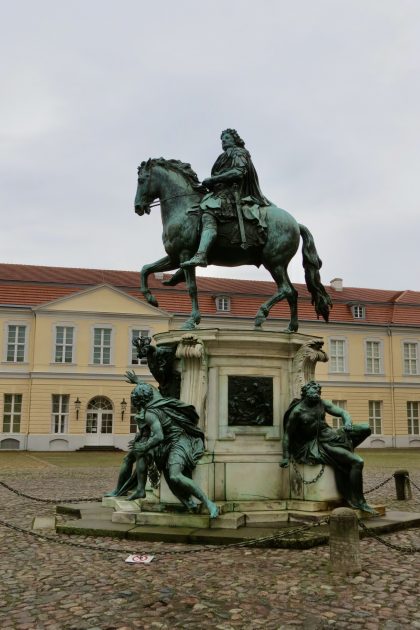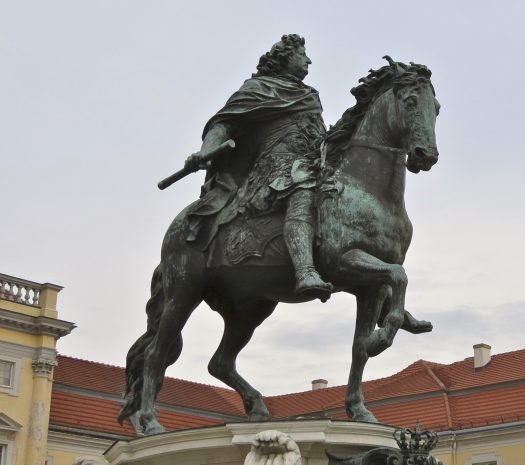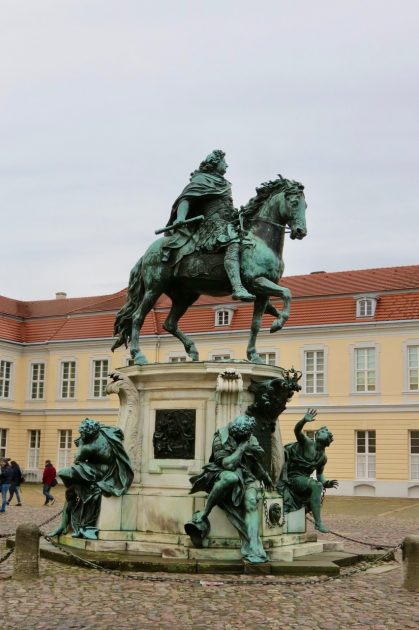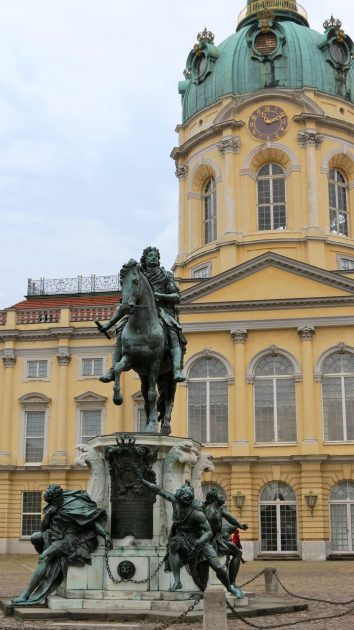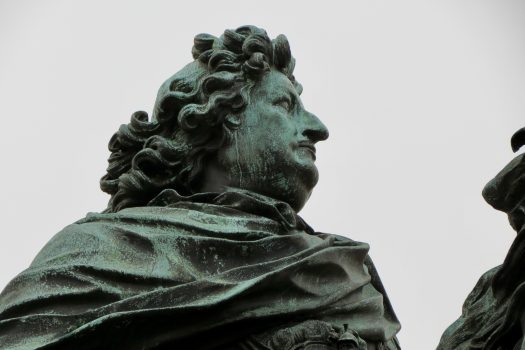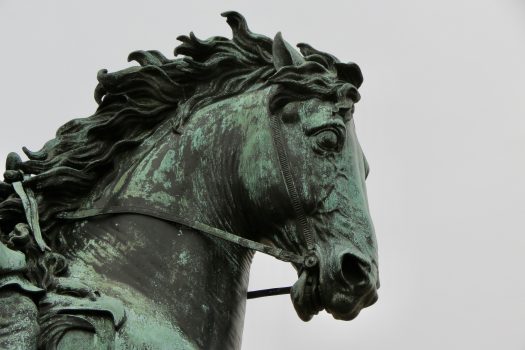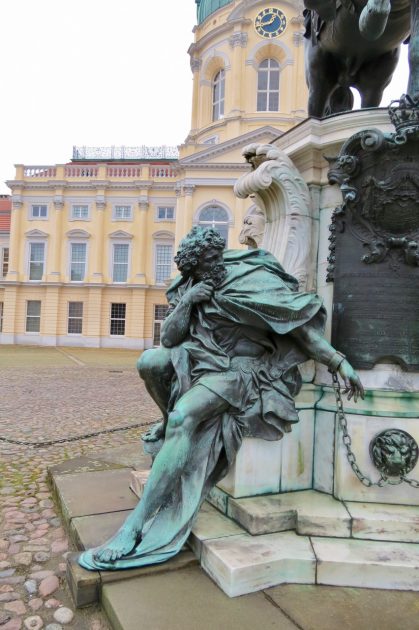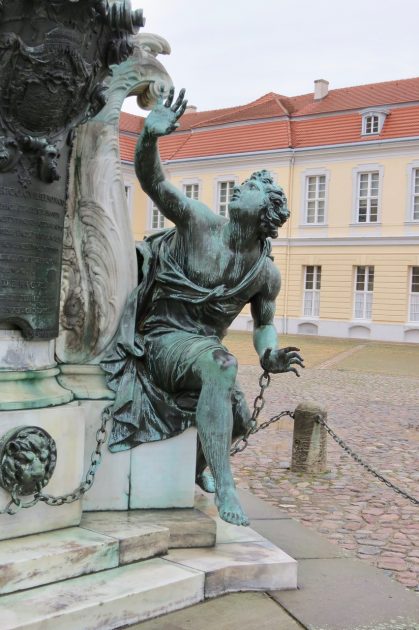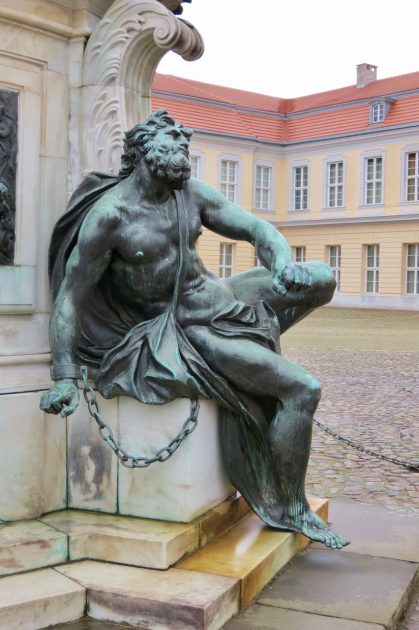Home | Friedrich Wilhelm Elector
- CountryGermany
- Town:Berlin Charlottenburg
-
Year of creation:1708
- Rider(s):Friedrich Wilhelm Elector
(1620-1688) was Elector of Brandenburg and Duke of Prussia, thus ruler of Brandenburg-Prussia, from 1640 until his death in 1688. A member of the House of Hohenzollern, he is popularly known as “the Great Elector” (der Große Kurfürst) because of his military and political achievements. Frederick William was a staunch pillar of the Calvinist faith, associated with the rising commercial class. He saw the importance of trade and promoted it vigorously. His shrewd domestic reforms gave Prussia a strong position in the post-Westphalian political order of north-central Europe, setting Prussia up for elevation from duchy to kingdom, achieved under his son and successor.
In his half-century reign, he transformed the small remote state of Prussia into a great power by augmenting and integrating the Hohenzollern family possessions in northern Germany and Prussia. When he became elector (ruler) of
Brandenburg in 1640, the country was in ruins from the Thirty Years War; it had lost half its population on war, disease and emigration. The capital Berlin had only 6,000 people left when the wars ended in 1648. He united the multiple separate domains that his family had acquired primarily by marriage over the decades, and built the powerful unified state of Prussia out of them. His success in rebuilding the lands and his astute military and diplomatic leadership propelled him into the ranks of the prominent rulers in an era of “absolutism” like Louis XIV, Peter the Great (1682–1725) and Charles XI of Sweden
Although a strict Calvinist who stood ready to form alliances against the Catholic states led by France’s Louis XIV, he was tolerant of Catholics and Jews. He settled some 20,000 Huguenot refugees from France in his domains, which helped establish industry and trade, as did the foreign craftsmen he brought in. He is most famous for building a strong standing army, with an elite officer corps. Funding the military through heavy taxes required building up new industry, such as wool, cotton, linen, lace, soap, paper, and iron. He paid attention to infrastructure, especially building the Friedrich Wilhelm Canal through Berlin, linking his capital city to ocean traffic. He was frustrated in building up naval power, lacking ports and sailors. A learned man, he founded a university and established the Berlin library
- Sculptor(s):Schlüter, Andreas
(1659 – 1714) was a German baroque sculptor and architect, active in the Holy Roman Empire of the German Nation, the Polish–Lithuanian Commonwealth, and the Russian Tsardom. His most important equestrian sculpture is that of the “Great Elector”, Friedrich Wilhelm of Brandenburg.
In 1713 Schlüter’s fame brought him to work for Tsar Peter the Great in Saint Petersburg, where he died of an illness after creating several designs.
-
This baroque statue stood originally on the ‘Lange Brücke’, the present Rathausbrücke. The design of the statue was clearly inspired by the Marcus Aurelius example. The elector seated on his horse without stir ups, half in Roman dress and half in the dress of his time. In World War II, the statue was brought into safety. However on its way back after the war the boat with the statue sank in the harbour of Tegel. In 1949, the statue was recovered and erected at its present site, the courtyard of the Charlottenburg castle. The original pedestal that stayed behind in East Germany can now be seen in the entrance hall of the Bode Museum in Berlin with a synthetic replica of the statue on it.
